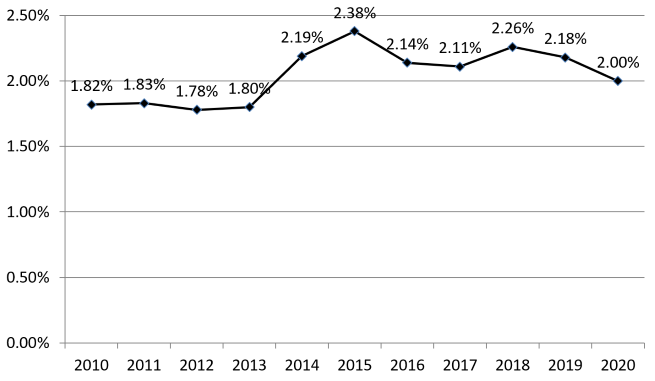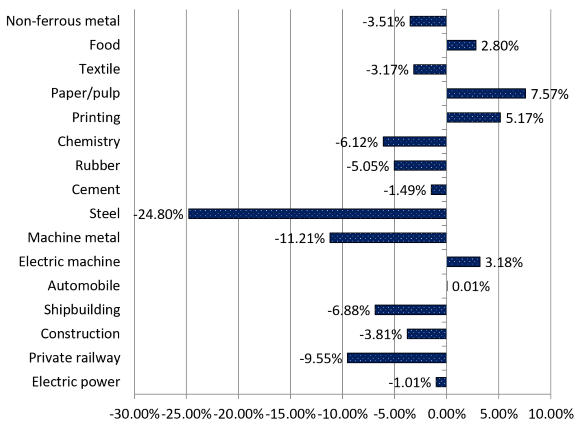Column Finance and the Social Security System 2020.09.10
【Aging, safety net and fiscal crisis in Japan】No.275: COVID-19 is expected to negatively impact regular employee wages starting from the 2020 winter bonuses
On August 14th, 2020, the Ministry of Health, Labour and Welfare announced the results of a wage increase survey for the Spring Fighting in 2020. This is a labor-management negotiation that deals with not only monthly wages and bonuses, but also working hours and childcare/nursing care. In 2020, the targets of the survey were 321 large companies with a capital of at least JPY 1 billion and more than 1,000 employees. As shown in Figure 1, the average wage increase rate for the past 10 years was around 2%, and it remained at 2% in 2020. This rate is the sum of regular raises and the base up. The change in regular raises is based on the wage curve, in which the wages increase or decrease across time (depending on factors including age or years of employment), while the base up uniformly increases the basic wages of all employees and is independent of the wage curve.
The Japan Business Federation, the largest corporate group in Japan, announced the results of its 2020 summer bonus survey on August 5th, 2020. The weighted average of the 2020 summer bonuses for all industries was minus 2.17% compared to the 2019 summer bonuses (Table 1). After the Lehman Shock in 2008, the 2009 summer bonuses decreased by 19.39%. There was concern that a similar decrease would occur in the 2020 summer bonuses due to the economic stagnation as a result of COVID-19, but this was not the case. When examining the rate of change in the 2020 summer bonuses by industry, the steel industry’s 24.80% decrease stands out (Figure 2). Although this reflects the oversupply of steel globally, and is unrelated to COVID-19, it demonstrates the potential effects of economic stagnation over time. As it has become certain that this economic stagnation will persist, and corporate performance will decline significantly, the 2020 winter bonus and the spring fight for 2021 are expected to have considerable effects on workers.
Figure 1 Average wage increase rate for large companies

Source: Ministry of Health, Labour and Welfare
Table 1 Average amount of summer bonuses for large companies in 2020

Note: Exchange rate is US$ 1 = JPY 108
Source: Japan Business Federation.
Figure 2 Year-on-year change rate of 2020 summer bonuses by industry

Source: Japan Business Federation.
